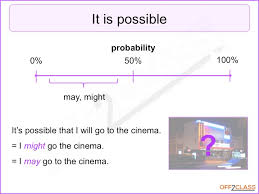Can
Used to express ability (to be able to do something):
- I can make jewelry.
- He can’t speak French.
- Can you open this jar?
Used to ask for permission:
- Can I use your bathroom?
- Can I leave now?
- Can I raise the volume?
Used to make requests or suggestions:
- Can I have more napkins?
- Can I have the bill?
- You can take this spot if you like.
- You can do whatever you want.
Could (past form of can)
Describes an ability that someone had in the past:
- I could swim when I was young.
- You could see the boat sinking.
- They could tell he was nervous.
Often used in auxiliary functions to express permission politely:
- Could I take this jacket with me?
- You could borrow my umbrella.
- Could you please let me pass you?
- Could I get you more water?
Used to express possibility:
- All of them could ride in the van.
- You could always stay at our house.
- Could it be true?
- This plan could really work out.
May
Used to ask for formal permission:
- May I come in?
- May I say something now?
- May I ask one question?
Used to suggest something that is possible:
- She may agree with this plan.
- They may not be happy about what happened.
- It may shower tonight.
Might (past form of may)
Used to suggest a smaller possibility than may does (actually, might is more common than may in American English):
- He might have finished it.
- I might go see a doctor.
- I might not come this time.
- It might be right.
- You might have lost it.
- The store might have been closed today.
Must
Used to express something formally required or necessary:
- I must complete the project by this week.
- The government must provide health care for everybody.
- Everyone must save the natural resources of the earth.
- The building must have a fire alarm.
- You must answer my question right now.
Used to show that something is very likely:
- He must be a genius.
- You must be joking!
- There must be an accident.
- She must be very tired.
[Quiz 21.1]
Choose the right word for each blank.
1)She (can, could, may, might, must) have practiced a lot. Her performance was amazing.
2)I can’t find my watch anywhere. I (can, could, may, might, must) have lost it.
3)Professor, (can, could, may, might, must) I ask a question?
4) (can, could, may, might, must) you please lower your voice?
5)You (can, could, may, might, must) be kidding! How is that possible?
6)I (can, could, may, might, must) speak both English and Chinese fluently.
2) might
3) may
4) could
5) must
6) can
